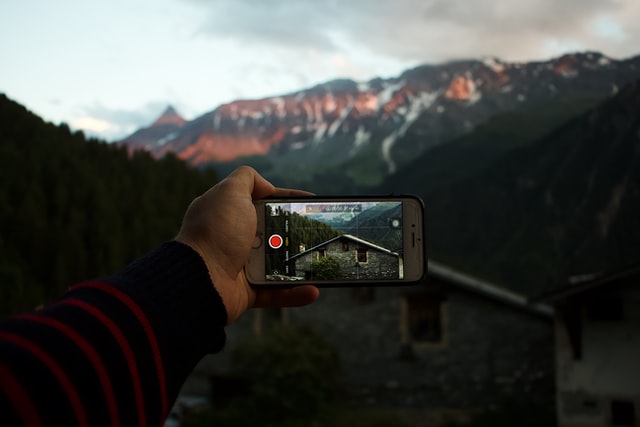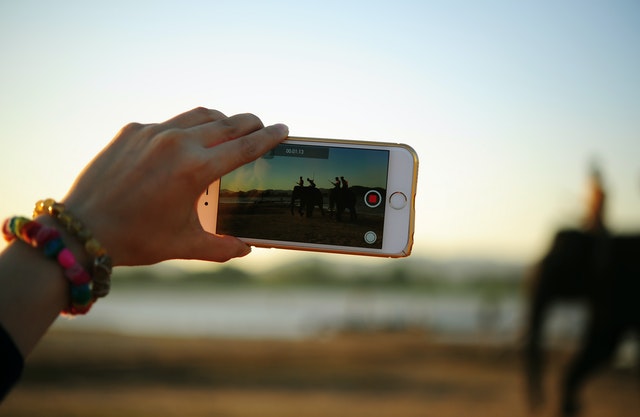

Live Your Life Instead of Filming It
Last week, in writing about the impact of a generation of parents who eschew actually parenting their children, I told the story of our recent experience at the Venardo’s Circus as two children traipsed across the patron boundary rope while their parents blithely ignored them and recorded the performances on their phone. I’m not sure I would label this week’s column a two-parter per se, but as I referenced last week, I do believe that there is another important lesson to be learned from all of this: Put your damn phone down and live your life rather than filming it.
Sometimes it is hard to conceive of the reality that the first iPhone debuted just fifteen years ago in June of 2007. It seems like they have been with us for generations, an integral part of daily existence. But that just goes to show how indispensable our phones have become in so short a time. In just a decade and a half, the time my eldest child has been alive, these devices have become so fundamental to our being that studies suggest that 74% of people feel uncomfortable leaving their phone at home and a full third of polled Americans would rather give up sex than their phones. After all, if they had to give up their phones, how would they access porn?
But that’s just the problem, isn’t it? We have become so conditioned into living our lives vicariously through our phones that we fail to actually live the lives right in front of us. Go back to our episode at the circus. Don’t get me wrong- the performances were definitely riveting, but is anyone really going to go back and watch their videos of the spectacles that took place before their eyes in real life? The proprietors even invited people to film the events and post them on social media, but since when has watching events through the lens of our phones usurped experiencing them first hand in real life?
One facet underpinning the psychology behind this increasingly common phenomenon lies in our human need to record and chronicle the evanescent moments of a transitory life. But it is life’s ephemeral nature that is just the reason why we should be immersing ourselves in life rather than trying to capture it by recording it. We have a human tendency to want to hold onto things, to make the impermanent permanent, but that’s not how life works. Everything in this world is fleeting, and nothing lasts forever, including those videos we like to think will span the passage of time. We have all seen people with their phones out trying to capture weddings, graduations, births. Shoot, I’ve even seen folks using their phones to document their trips to art museums. But that’s what our memories are for. If you take time to later watch your trip from years before to the Boston Museum of Fine Arts, you should go out making new memories. But my mind can reflect back to those fond memories whenever I like, or at least as long as I haven’t gone senile. All we ever have is the present moment. Cherish it, not by filming it, but by living it.
Years ago, as I was performing the first of what would be several more wedding celebrations, I asked my girlfriend at the time to record it on my iPad, but as it turns out, she was, to use a politely acceptable euphemism, technologically-challenged. Even though she panned in and out and thought she was doing a masterful job of filming, she never hit the record button. All of it was lost. Or was it? That day lives on not just in my memory, but in the present moments I get to spend with two of my favorite people.

The other part of this, of course, lies in our desire to post each and every moment of our otherwise mundane lives to the world of social media, a world that could generally give a damn what you are or are not doing. The impetus for this, conscious or not, lies in our perpetual need for validation, to be told through likes and comments that what we are doing with our lives matters. This constant need for validation has, of course, only been exacerbated by the culture of social media as we feel this irresistible urge to inform everyone of the minutia of our daily lives, all in the hopes that it will come across to our friends on Facebook and Instagram that we are infinitely more interesting and fun-loving than everyone else, that we are doing life right. Studies indicate the powerful emotional influence of likes or lack thereof in response to our posts as we put our lives out there for everyone to see and then hang on the relative approval we do or do not receive. “Look, I took my kids to the circus, even though I didn’t really watch any of the performances because I was too busy filming it so that all of you could watch my uploaded clips and tell me how cool my life is for going to the circus. Oh, my kids? Yeah, I barely even knew they were there since they wandered off without me even noticing them.”
Do I recognize the irony of me writing this column and then posting it on social media? Of course I do, but that’s just the world we live in. I post very little of my own life on Facebook, but recognize it as the necessary evil for self-promotion of one’s writing. But if this convinces even one of you to delete your social media and focus instead on the real world around you, if you stop reading TRUTH because it no longer pops up on your news feed, I’m ok with that. The column will still be there available for all of you on Medium or our website www.waitingfortoday.com, and it will be just as good and just as impactful. There just won’t be anyone there to film it.
Steven Craig is the author of the best-selling novel WAITING FOR TODAY, as well as numerous published poems, short stories, and dramatic works. Read his blog TRUTH: In 1000 Words or Less every THURSDAY at www.waitingfortoday.com




